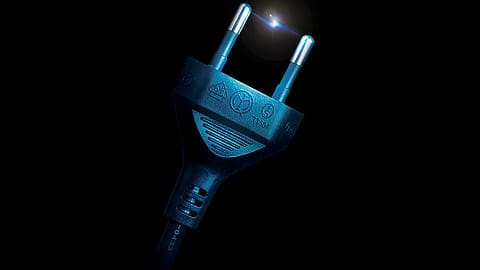Tech unplugged
Innovation for off-grid products

Grid failures, price hikes, coal shortage, and debt are crippling the Indian power sector. The latest economic survey reveals that power supply fell short by 9% in the ongoing fiscal. But there’s a bright side to all this: innovation to develop off-grid products. From refrigerators that stay cool for hours during an outage to mobiles charged by sunlight, companies have come up with products that can cope with power cuts. And are easy on the environment.
1. KEEPING COOL
The fanciest of gadgets are available in stores, but something as basic as a refrigerator can be rendered ineffective by erratic power supply. Keeping this in mind, LG has launched the Power Cut EverCool refrigerators, which ensure cooling even during an outage. A cooling mechanism based on the convection principle that hot air rises and cold air moves down gets activated with the opening of a valve as soon as there is a power cut. The coolant begins circulating through a grid of pipes spread across the fridge, ensuring cooling for seven hours after a power cut. Once power supply resumes, the valve closes and the normal cooling system takes over.
2. SUNSHINE FOR MOBILE
A mobile has run out of charge, and there’s been an outage for hours. There is also no sign of power supply resuming anytime soon. How one wishes there was another way of charging that phone. If it’s the Micromax X259, there is—the handset can be charged using sunlight. The dual-SIM phone is targeted at rural areas, where power is erratic. It has a solar panel which charges the phone when it’s exposed to sunlight. Three hours of solar charge provides 1.5 hours of talk time.
3. POWER LIFTING
Imagine an elevator that generates energy that is used to run other appliances. Otis’s Gen2 Nova is designed to do just that. In conventional elevators, the energy generated by the moving carriage is wasted because it is dissipated as heat. In the Gen2 Nova, this energy is converted into electricity and fed back into the building’s internal electrical grid for use by the elevator or any other electrical appliance.
4. SWIPE WHEN THIRSTY
In villages and slums, where purified drinking water is a luxury, how about an ATM-like machine that dispenses water? Eureka Forbes and Piramal Water have developed modules named Water Shop and Sarvajal, respectively, consisting of a water purification unit and a dispenser. These modules are placed beside installations such as milk booths or petrol pumps. Once users buy a prepaid smart card at the booth or pump, they can swipe it to get water priced between 10 paise and 50 paise a litre, depending on the location. Sarvajal modules have been installed in Rajasthan, Gujarat, and Madhya Pradesh, while Water Shops can be found across Maharashtra, New Delhi, and Uttar Pradesh.